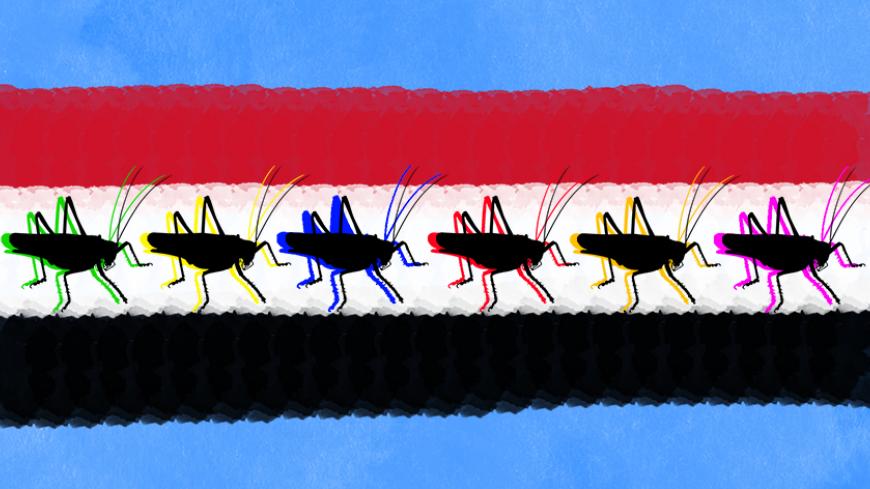IDLIB, Syria — With harvest season in full swing, farmers and officials have begun to calculate the damage done by a swarm of locusts that descended in April and May on large areas of opposition-controlled Idlib province, in northern Syria. From early May to late June, farmers usually harvest wheat, barley, lentils, chickpeas and cumin, among other crops, in addition to several types of vegetables on the province's plains and plateaus. Agriculture is the most vital economic activity in Idlib. Before the Syrian revolution, Idlib was a top olive oil producer, second only to Aleppo in the country.
Locusts appear every year in the area, but the ongoing civil war, weakness of the self-proclaimed Syrian Interim Government and lack of resources available to the Idlib Agricultural Directorate are the primary factors that have allowed the destructive spread of the agricultural pest this year. In the absence of effective measures, large tracts of agricultural land run the risk of desertification.



